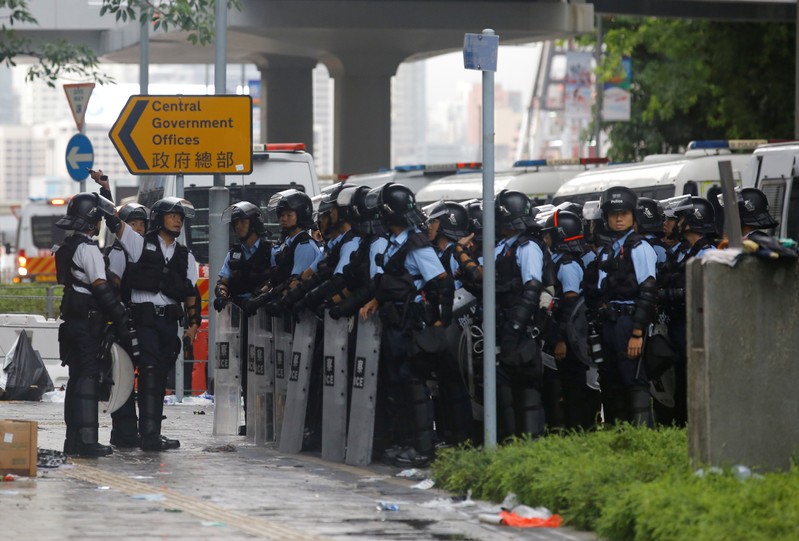
Protesters occupy a main road and walkways during a rally against a proposed extradition law in Hong Kong on June 12, 2019.
Paul Yeung | Bloomberg | Getty Images
Hong Kong Chief Executive Carrie Lam has announced in a press conference on Saturday afternoon that a contentious proposal to allow extraditions to mainland China has been put on hold.
This came after mass protests and street clashes shook the Asian financial hub in the past week. Lam, the territory’s top official, had initially been defiant, vowing that the plan must proceed and condemning Wednesday’s demonstrations, calling them a “blatant, organized riot, and in no way an act of loving Hong Kong.”
The proposed bill, calling for Hong Kong to make legal amendments to allow accused criminals to be extradited to jurisdictions with which it has no such arrangement — including China — has led to widespread opposition in the semi-autonomous Chinese territory of 7.4 million people.
Hundreds of thousands of people marched in protest on June 9 and another mass rally was planned for Sunday.
It is not clear whether the suspension would satisfy opponents, who have demanded it be scrapped.
Hong Kong citizens, who enjoy a legal system independent from the rest of China, fear the plan could threaten those judicial protections and their broader autonomy — legacies of its time as a British colony.
Hong Kong has for nearly 22 years been a semi-autonomous region of the People’s Republic of China with its own legal system and currency.
While the territory was guaranteed a high degree of control over its own affairs for at least 50 years under a “one country, two systems arrangement” after Britain ceded sovereignty to China on July 1, 1997, local unease over increasing mainland influence has steadily grown.
Foreign business groups and governments had come out against the plan amid concerns that any erosion to Hong Kong’s legal system could make it a less attractive place for banks and companies to operate.
Carrie Lam Cheng Yuet-Ngor,(Right) Hong Kong’s new Chief Executive and her new cabinet are sworn in by Chinese President Xi Jinping during an inauguration ceremony in Hong Kong
Keith Tsuji | Getty Images
The government says the legislation is necessary to close a legal “gap” that prevents it from extraditing a local man to Taiwan for allegedly killing his girlfriend while on a visit there last year.
It wants to amend the law to that effect, but the focus of concern is that it would also apply to China. The government insists there are strong safeguards, including those that will prevent human rights abuses, and says no one would be extradited for political purposes.
Lam categorically denied Monday in remarks to reporters the idea that the legal changes were proposed by the central government in Beijing. China was on record as backing the plan, though it has dismissed concerns it wants to water down Hong Kong’s autonomy.
“Hong Kong people’s rights and freedoms have been fully guaranteed,” Geng Shuang, a Chinese foreign ministry spokesman, said at a regular briefing Wednesday in Beijing.
— CNBC’s Vivian Kam contributed to this report.

